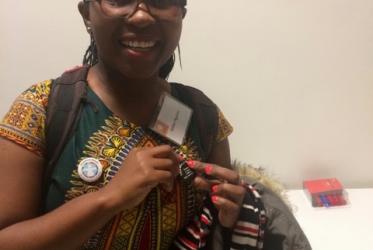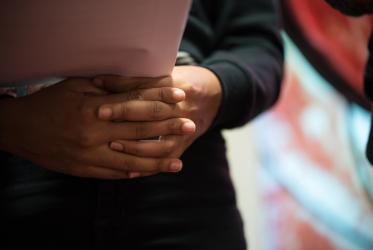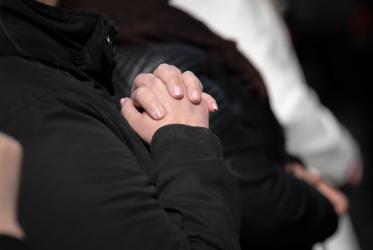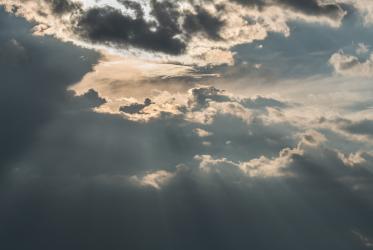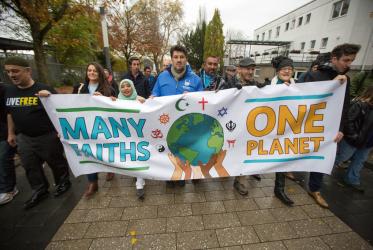Displaying 881 - 900 of 1551
WCC to join “31 Days of Prayer for Women’s Empowerment”
21 February 2018
WCC encourages participation in day of prayer for South Sudan, DRC
16 February 2018
Day of prayer and fasting for peace in South Sudan, Democratic Republic of Congo
23 February 2018
Worldwide
WCC pilgrims visit the wounds of Colombia
13 February 2018
COP 23 “debriefing” brings faith and ethical perspectives
23 January 2018
Tveit: Beyond national borders, we are one humanity
23 January 2018
Tveit to World Economic Forum: “Say no to nuclear weapons”
22 January 2018
WCC joins many in condemning Trump’s derogatory remarks
15 January 2018
